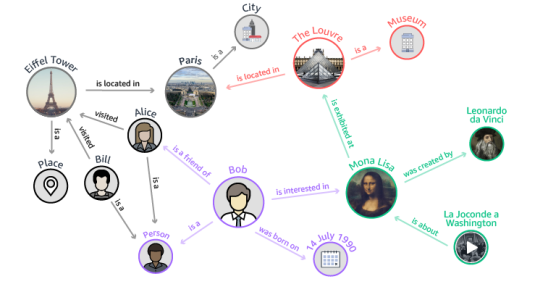-
SIGIR 20222022Using implicit feedback collected from user clicks as training labels for learning-to-rank algorithms is a well-developed paradigm that has been extensively studied and used in modern IR systems. Using user clicks as ranking features, on the other hand, has not been fully explored in existing literature. Despite its potential in improving short-term system performance, whether the incorporation of user
-
NAACL 20222022User sessions empower many search and recommendation tasks on a daily basis. Such session data are semi-structured, which encode heterogeneous relations between queries and products, and each item is described by the unstructured text. Despite recent advances in self-supervised learning for text or graphs, there lack of self-supervised learning models that can effectively capture both intra-item semantics
-
CVPR 20222022Fashion image retrieval based on a query pair of reference image and natural language feedback is a challenging task that requires models to assess fashion related information from visual and textual modalities simultaneously. We propose a new vision-language transformer based model, FashionVLP, that brings the prior knowledge contained in large image-text corpora to the domain of fashion image retrieval
-
The Web Conference 20222022A search on the major eCommerce platforms returns up to thousands of relevant products making it impossible for an average customer to audit all the results. Browsing the list of relevant items can be simplified using search filters for specific requirements (e.g., shoes of the wrong size). The complete list of available filters is often overwhelming and hard to visualize. Thus, successful user interfaces
-
ACL 2022 Workshop on ECNLP2022In E-commerce search, spelling correction plays an important role to find desired products for customers in processing user-typed search queries. However, resolving phonetic errors is a critical but overlooked area. The query with phonetic spelling errors tends to appear correct based on pronunciation but is nonetheless inaccurate in spelling (e.g., "bluetooth sound system" vs. "blutut sant sistam") with
Related content
-
July 22, 2019Using machine learning to train information retrieval models — such as Internet search engines — is difficult because it requires so much manually annotated data. Of course, training most machine learning systems requires manually annotated data, but because information retrieval models must handle such a wide variety of queries, they require a lot of data. Consequently, most information retrieval systems rely primarily on mechanisms other than machine learning.
-
May 02, 2019Traditionally, Alexa has interpreted customer requests according to their intents and slots. If you say, “Alexa, play ‘What’s Going On?’ by Marvin Gaye,” the intent should be PlayMusic, and “‘What’s Going On?’” and “Marvin Gaye” should fill the slots SongName and ArtistName.
-
March 05, 2019The 2018 Alexa Prize featured eight student teams from four countries, each of which adopted distinctive approaches to some of the central technical questions in conversational AI. We survey those approaches in a paper we released late last year, and the teams themselves go into even greater detail in the papers they submitted to the latest Alexa Prize Proceedings. Here, we touch on just a few of the teams’ innovations.
-
December 21, 2018In May 2018, Amazon launched Alexa’s Remember This feature, which enables customers to store “memories” (“Alexa, remember that I took Ben’s watch to the repair store”) and recall them later by asking open-ended questions (“Alexa, where is Ben’s watch?”).
-
October 25, 2018At the 2018 Conference on Empirical Methods in Natural Language Processing (EMNLP), Amazon researchers and their colleagues at the University of Sheffield and Imperial College London will host the first Workshop on Fact Extraction and Verification, which will explore how computer systems can learn to recognize false assertions online.
-
August 19, 2018At the annual meeting of the North American chapter of the Association for Computational Linguistics in June, researchers at Amazon and the University of Sheffield released a new dataset that can be used to train machine-learning systems to determine the veracity of factual assertions online. The dataset is called FEVER, for fact extraction and verification.







